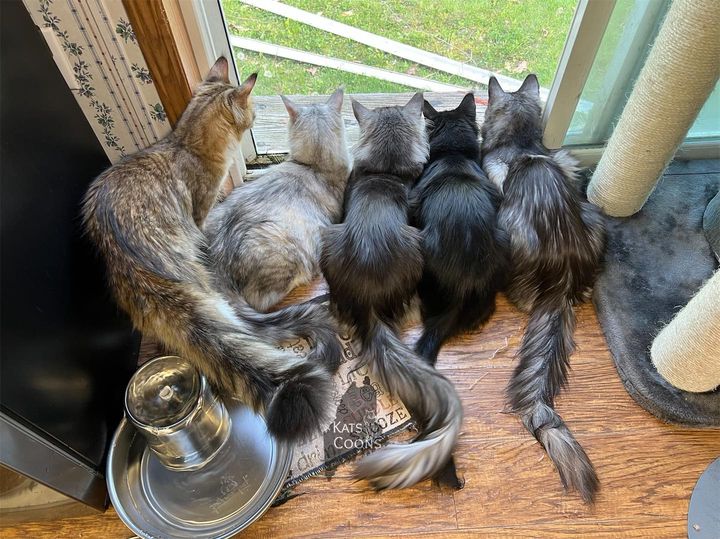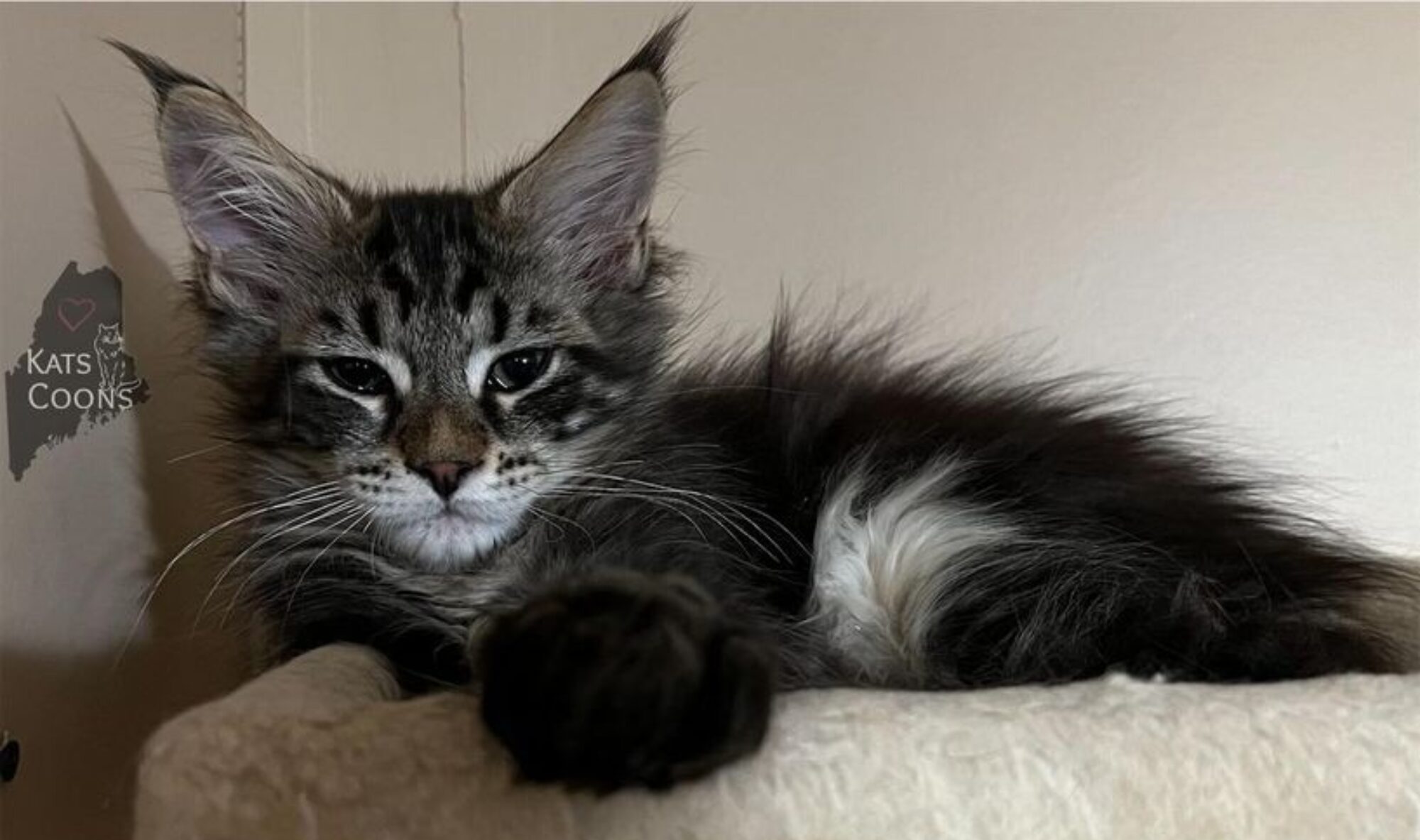
Meet the gentle giant.
A Maine Coon cat is truly one of the best pets you can bring into your home. With their friendly and playful nature, they offer unwavering loyalty and affection. Their intelligence adds to their charm, making them not just companions but also engaging friends. While there are countless varieties of domestic cats, none can match the distinctive qualities of the Maine Coon. Embrace the joy of having a Maine Coon, and you won’t regret it!
A Little History
The Maine Coon is a large, native American cat that originated in the state of Maine, where it is the official state cat. It is one of the oldest natural breeds in North America and is considered the only longhaired breed native to the U.S. Unlike Bengals and Savannah cats, which are created through crossbreeding with feral breeds, the Maine Coon is a naturally occurring breed.
Origin
Numerous theories and myths explain the origins of the Maine Coon breed in New England. One old myth suggests that they resulted from domestic cats mating with raccoons, which is why they have bushy tails resembling those of raccoons. However, we now know that this is scientifically impossible. A more plausible theory is that Maine Coons originated from the breeding of short-haired domestic cats and European long-haired cats brought over by early American settlers.
Maine Coons evolved to be large and hardy, with a shaggy, water-resistant fur coat that helps them survive the harsh winters of the region. Initially, Maine Coons were outdoor cats but later became a valuable domestic breed, helping to keep ships, barns, and homes free of rodents.
Personality
Maine Coons, despite their large size, are known for their affectionate, good-tempered, and gentle nature. They can adapt well to any home and climate, but it’s important to provide them with enough space to exercise and plenty of love and attention. This unique breed generally gets along well with everyone, including children, dogs, and other cats. Each Maine Coon has its own distinct personality, but there is little difference in temperament between males and females, aside from their size. Their easygoing nature and high intelligence have earned them the nickname “the dogs of the cat world.”
Appearance
Maine Coons are known for their distinctive physical features, which include a prominent ruff around the chest, a large bone structure, and a rectangular body shape. They have large paws with tufted toes, ear tufts, lynx-like tips, and long, bushy tails. As a breed, Maine Coons are muscular and robust, often reaching heights of up to 16 inches and weighing between 15 and 22 pounds.
Unlike many other domestic cat breeds that reach their full size in about 2 years, Maine Coons continue to grow until they are around 3 to 4 years old. This extended growth period sets them apart from most cats, making them unique in their development.
Maine Coons come in a wide variety of color combinations and patterns. Common colors include silver, white, black, red, blue, and brown, often in various combinations. Their patterns can feature white patches of different sizes or consist of a completely solid color without any white.
Maine Coons have distinct patterns that are separate from their coat colors. Accepted patterns include classic, mackerel, spotted/ticked, solid, tortoiseshell, calico, tabby, smoke, shaded, torbie, and many others. No particular color or pattern is preferred over another.
Diet and Nutrition
Maine Coons need a high-protein diet to support healthy growth. Like other large breeds, it’s important to prevent Maine Coons from becoming overweight. Provide your Maine Coon age-appropriate cat food and ensure they get plenty of exercise. Maintaining a healthy weight contributes to a longer, happier, and more active life.
Grooming
Maine Coons are known for their gorgeous, long, shaggy coats that feel silky and just a bit oily. To keep their fur looking its best and to prevent tangles, it’s a good idea to brush them weekly. Not only does brushing help to spread those natural oils through their coat, but it’s also a wonderful way to bond with your furry friend. Regular grooming keeps your cat happy and healthy, and it helps reduce shedding, which means fewer stray hairs on your clothes and around the house!
Don’t forget about those adorable little claws! Since our contract has a no-declawing policy, we recommend trimming your cat’s nails regularly. Providing a scratching pad or post is also essential—this way, they have a designated spot to scratch. Start trimming their nails early so your kitten gets used to having their paws handled. Most cats benefit from a nail trim every few weeks.
Scratching is a natural and healthy behavior for cats, and it comes with lots of perks! It helps keep their nails in great shape by removing the outer layer, and it also helps them mark their territory with scent and visual cues. If you introduce a scratching pad early on, your cat will be more likely to use it instead of your furniture. Scratching allows cats to stretch their claws, feet, and bodies, which can relieve stress and release those delightful “feel-good” hormones that keep them calm and content. If you don’t provide a scratching option, they might choose something you’d rather they didn’t! So, set them up for success and enjoy your time together!
Exercise
Kittens and cats love to hone their hunting skills through play! Even though our house cats don’t need to hunt for their meals, they still have that playful energy to burn off. Those natural instincts to stalk and hunt are still very much a part of them! Engaging in lively play not only keeps their hearts healthy and their joints moving, but it also gives their minds a great workout.
Maine Coons, in particular, are super social and absolutely adore interactive playtime with you and your family. We suggest setting aside some fun play sessions twice a day, each lasting about 15 to 30 minutes. Head to your local pet store and pick up some kitten-safe toys that you can wiggle around to make them look alive. You’ll love watching your kitten stalk, pounce, and play with those toys instead of your toes!
Plus, did you know that Maine Coons are really smart? They can learn all kinds of fun tricks, like fetching! Happy playing!

